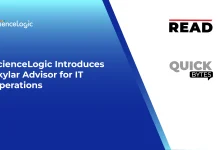Horizon Therapeutics plc, announced the presentation of a series of analyses demonstrating the risk of hearing-related events among people with Graves’ disease and TED, including among those treated with TEPEZZA. TEPEZZA is the first and only medicine approved by the U.S. Food and Drug Administration (FDA) for the treatment of TED, regardless of disease activity or duration. TED is a serious, progressive and potentially vision-threatening rare autoimmune disease.
Data presented at the American Association of Clinical Endocrinology Annual Meeting in May shared further information on hearing-related adverse events (AEs) in the TEPEZZA pivotal trials. Results from two studies shared at the Endocrine Society Annual Meeting assessed hearing-related AEs in populations with Graves’ disease and TED, as well as in a dataset from eight oncology trials for teprotumumab.
Graves’ Disease and TED Linked to Hearing Loss
Decreased hearing, particularly at high frequencies, has been observed in people with Graves’ disease, but specific prevalence data among the population with TED is limited. An analysis presented at ENDO assessed data on hearing-related medical claims among people with Graves’ disease, TED and those who received TEPEZZA treatment. Evidence of increased hearing-related issues in people who live with Graves’ disease and TED, irrespective of treatment with TEPEZZA, was uncovered, supporting the need to evaluate hearing-related medical history in people with thyroid autoimmunity, especially when considering treatment options.
“The robust patient experience, made available through these medical claims-based analyses, has helped illustrate the correlation between thyroid autoimmunity and hearing-related challenges. The analyses highlight the need for screening and evaluation of this patient community,” said Dr. Terry Smith, study author and Professor Emeritus at the Department of Ophthalmology and Visual Sciences, W.K. Kellogg Eye Center, University of Michigan Medical School. “While we continue to study the risk of hearing-related events associated with TEPEZZA, these data further reinforce its strong clinical profile in treating people with Thyroid Eye Disease.”
Quality of Life (QOL) for Those with Hearing-Related Events Improved During TEPEZZA Trials
A further look at hearing-related AEs in the TEPEZZA Phase 2 and 3 pivotal trials and the Phase 3 open-label study was shared last month at AACE and published in Endocrine Practice evaluating Graves’ Ophthalmopathy Quality of Life (GO-QOL) scores among the 12 trial participants who reported tinnitus, hearing impairment or dysfunction compared to those without hearing-related events (n=109). The baseline overall GO-QOL score was similar between those with and without hearing-related AEs (61 and 63, respectively). Mean overall GO-QOL scores improved significantly for both groups from baseline throughout the trials, and by Week 24, each participant who reported a hearing AE experienced improvements in their GO-QOL score from baseline and none of the patients withdrew from the study.
Hearing-Related Events in TEPEZZA TED Trials Consistent with Large Historical Cancer Trials
Prior to the FDA approval of TEPEZZA for TED, teprotumumab was evaluated as a potential cancer therapeutic. In clinical trials, hearing-related AEs with insulin-like growth factor-I receptor inhibitors have been reported. This analysis presented at ENDO reviewed reports of hearing-related events in eight oncology trials where teprotumumab was administered either as a monotherapy (n=362) or in combination with other cancer therapies (n=271). The evaluation found consistent types of hearing-related events with similar incidence as reported in TED trials and in the FDA-approved labeling for TEPEZZA.
“We are committed to research that helps us better understand the physically devastating and emotionally burdensome impact of Thyroid Eye Disease and supports a positive treatment experience while establishing a positive benefit/risk profile,” said Jeffrey W. Sherman, M.D., FACP, executive vice president, chief medical officer, Horizon. “Before TEPEZZA, there was a significant unmet need for an effective medicine to treat Thyroid Eye Disease. We will continue to advance the science of Thyroid Eye Disease with the patient voice at the forefront of all we do.”
SOURCE: BusinessWire




